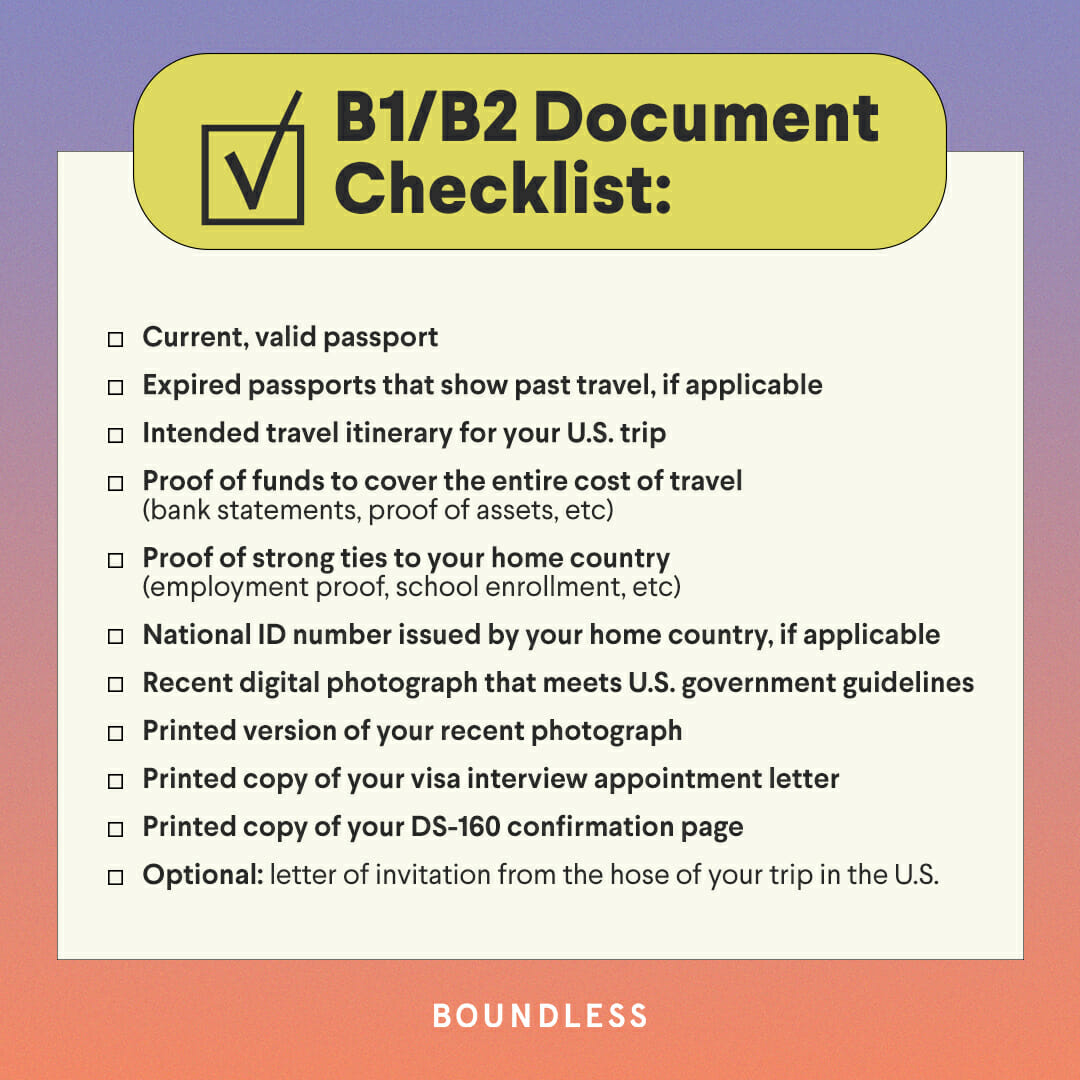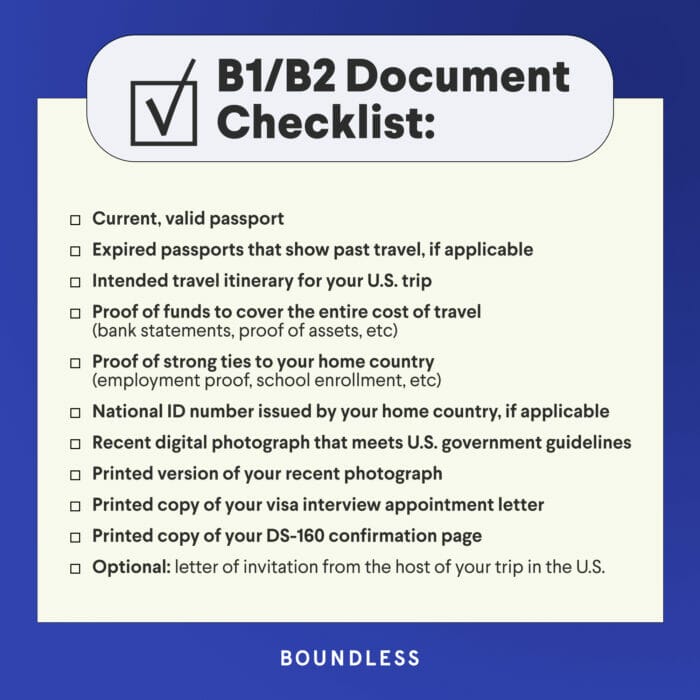Reference




OpenAI's Answer
For a B1/B2 visa interview, you will typically need the following supporting documents:
- Valid Passport: Your passport must be valid for at least six months beyond your planned stay in the U.S.
- DS-160 Confirmation Page: The DS-160 is the online nonimmigrant visa application form.
- Visa Application Fee Receipt: Proof of payment for the visa application fee.
- Photographs: Recent passport-sized photos as per U.S. visa requirements.
- Travel Itinerary: Details of your travel plans including accommodation and flight bookings.
- Proof of Income: Documents showing your current income, tax payments, property or business ownership.
- Invitation Letter: If applicable, a letter from a host in the U.S.
- Employment and/or Business Documents: Information proving your employment or business ownership.
For a comprehensive list and any additional requirements, it's always best to check the specific requirements on the official U.S. Embassy or Consulate website applicable to your location.
You can find more detailed information here: U.S. Visa Documentation.
Follow Up
Claude's Answer
To prepare for a B1/B2 visa interview, you'll need to gather several supporting documents. Here's a list of the essential items you should bring to your interview:
-
Valid Passport: Your passport should be valid for at least six months beyond your planned stay in the United States.
-
Nonimmigrant Visa Application (Form DS-160) confirmation page: This is the form you completed online.
-
Application fee payment receipt: If you've paid the visa application fee.
-
Photo: A recent photograph meeting the required specifications, if you didn't upload one while completing the DS-160.
-
Interview appointment letter: The letter confirming your scheduled interview.
-
Supporting documents specific to your purpose of travel:
- For business (B1): Letter from your employer, invitation letter from U.S. company, conference registration, etc.
- For tourism (B2): Travel itinerary, hotel reservations, tour bookings, etc.
-
Evidence of ties to your home country: This can include:
- Employment letter
- Property ownership documents
- Family ties documentation
-
Financial documents: Bank statements, tax returns, or other proof of your ability to finance your trip.
-
Previous U.S. visas (if applicable): If you've had a U.S. visa before, bring documentation of your previous travels.
-
Educational qualifications: Diplomas, degrees, or certificates that support your application.
-
Marriage certificate (if applicable): If your spouse is also applying or already has a U.S. visa.
-
Birth certificate: Especially important for minor applicants.
It's important to note that while these are common requirements, the exact documents needed can vary based on individual circumstances. The U.S. Department of State advises:
"You should bring all required documents listed on your appointment letter. You may also bring other documents that you think may help establish your ties to your home country or prove your intent to return after your visit to the United States." [Source: https://travel.state.gov/content/travel/en/us-visas/visa-information-resources/visa-denials.html]
Remember, consular officers have the discretion to request additional documents if they feel it's necessary to establish your eligibility for the visa. It's always better to be over-prepared than to lack a crucial document during your interview.
Follow Up
Reference




Moonshot's Answer
For a B1/B2 visa interview, the required supporting documents include:
-
Current Passport: Your passport must be valid for at least six months beyond your intended stay in the United States. U.S. Department of State
-
DS-160 Confirmation Page: Print confirmation of your online nonimmigrant visa application form DS-160. U.S. Department of State
-
Photographs: A 2x2 inches (51mm x 51mm)彩色照片 taken within the last six months. U.S. Department of State
-
Application Fee Payment: Proof of payment of the non-refundable visa application fee, which is $160. U.S. Department of State
-
Proof of Financial Support: Current proof of income, tax payments, property or business ownership, or assets to demonstrate your ability to cover your expenses while in the U.S. U.S. Department of State
-
Travel Itinerary: An itinerary outlining your travel plans within the U.S. or other evidence of your intent to return to your home country. U.S. Department of State
-
Proof of Employment/Enrollment: Documentation showing that you are employed or enrolled in school, which can help demonstrate your ties to your home country. U.S. Department of State
-
Proof of Ties: Any other documents that show your ties to your home country, such as property deeds, marriage certificates, or financial obligations. U.S. Department of State
Remember, these are general guidelines, and the specific requirements may vary depending on your nationality and individual circumstances. It's always best to check with the U.S. embassy or consulate where you will apply for the most accurate and up-to-date information. Here are some images that illustrate the documents typically required for a B1/B2 visa interview:
Please ensure that you bring these documents to your visa interview to facilitate a smooth process.